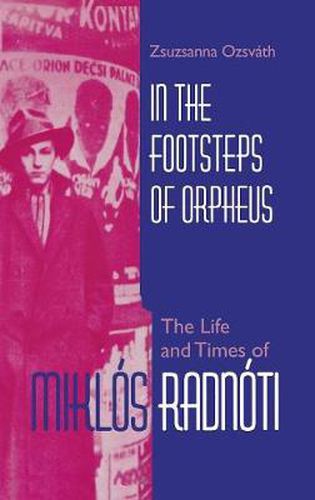Readings Newsletter
Become a Readings Member to make your shopping experience even easier.
Sign in or sign up for free!
You’re not far away from qualifying for FREE standard shipping within Australia
You’ve qualified for FREE standard shipping within Australia
The cart is loading…






Mikl-s Radn-ti, a young Hungarian Jewish poet, was shot by German guards while on a forced march from Yugoslavia back to Hungary during the final days of World War II. When his body was discovered and exhumed nearly two years later, a small book of poems was found in his coat pocket. These poems, together with the rest of Rand-ti’s work, solidified his reputation as one of Hungary’s greatest poets. He shared the fate of many Jewish artists and intellectuals in Central Europe during the early part of the 20th century, but his poetry brings out a particular and personal view of the Holocaust in Hungary. His work plays a unique role in the history of Central European culture as some of the most beautiful poems ever written in Hungarian, as a voice against the rise of totalitarianism, and as testimony to the destruction of Europe’s Jews. The author places Radn-ti within the context of the political and intellectual history of interwar Hungary, situating him as an artist who is both a Jew and a Hungarian patriot. Her sensitivity translations from the Hungarian lend poignancy to this tragic and forcefully told story. This account of Radn-ti’s life and work explores the sources of the poet’s inspiration and imagery and restores it to its extreme times and places.
$9.00 standard shipping within Australia
FREE standard shipping within Australia for orders over $100.00
Express & International shipping calculated at checkout
Mikl-s Radn-ti, a young Hungarian Jewish poet, was shot by German guards while on a forced march from Yugoslavia back to Hungary during the final days of World War II. When his body was discovered and exhumed nearly two years later, a small book of poems was found in his coat pocket. These poems, together with the rest of Rand-ti’s work, solidified his reputation as one of Hungary’s greatest poets. He shared the fate of many Jewish artists and intellectuals in Central Europe during the early part of the 20th century, but his poetry brings out a particular and personal view of the Holocaust in Hungary. His work plays a unique role in the history of Central European culture as some of the most beautiful poems ever written in Hungarian, as a voice against the rise of totalitarianism, and as testimony to the destruction of Europe’s Jews. The author places Radn-ti within the context of the political and intellectual history of interwar Hungary, situating him as an artist who is both a Jew and a Hungarian patriot. Her sensitivity translations from the Hungarian lend poignancy to this tragic and forcefully told story. This account of Radn-ti’s life and work explores the sources of the poet’s inspiration and imagery and restores it to its extreme times and places.